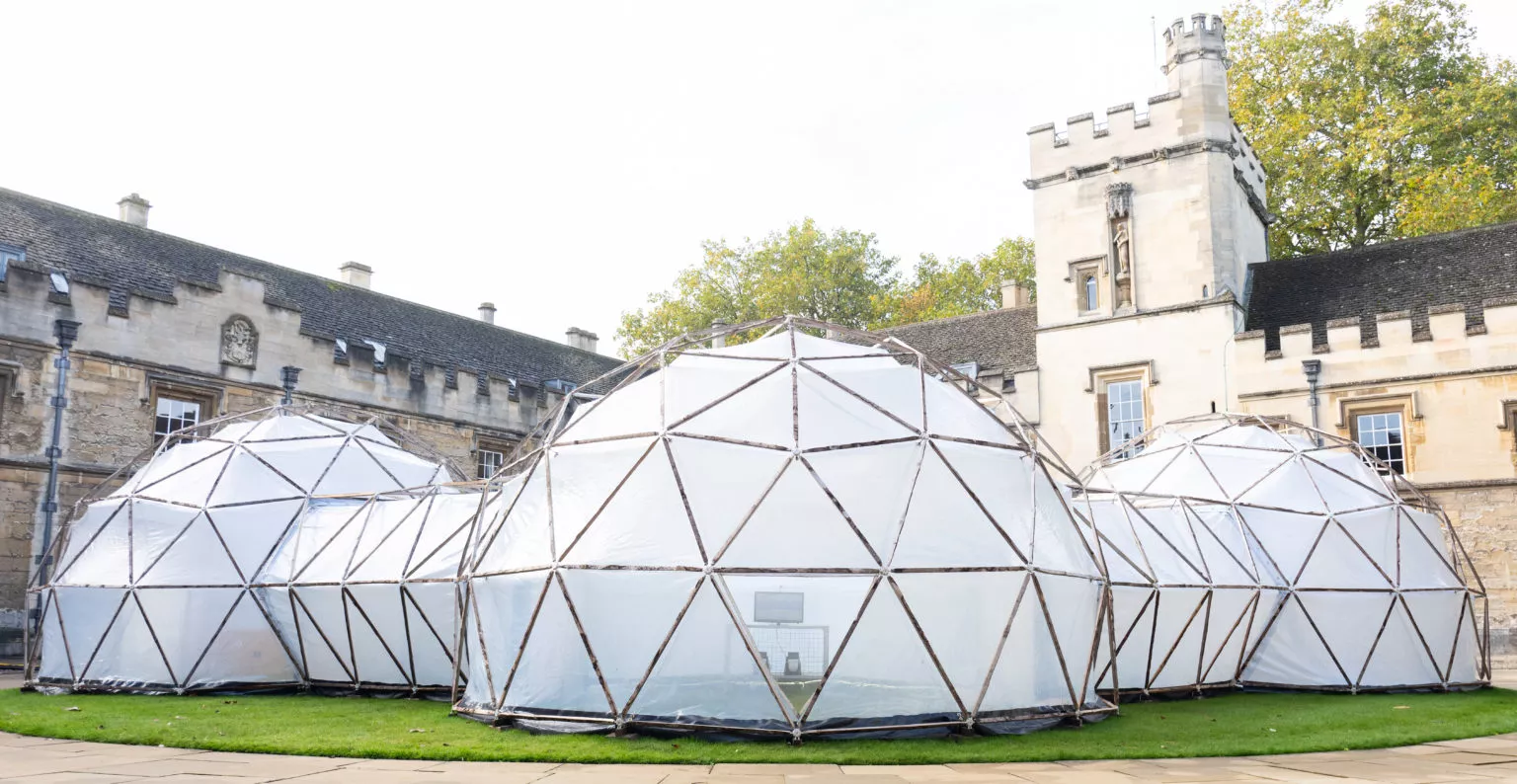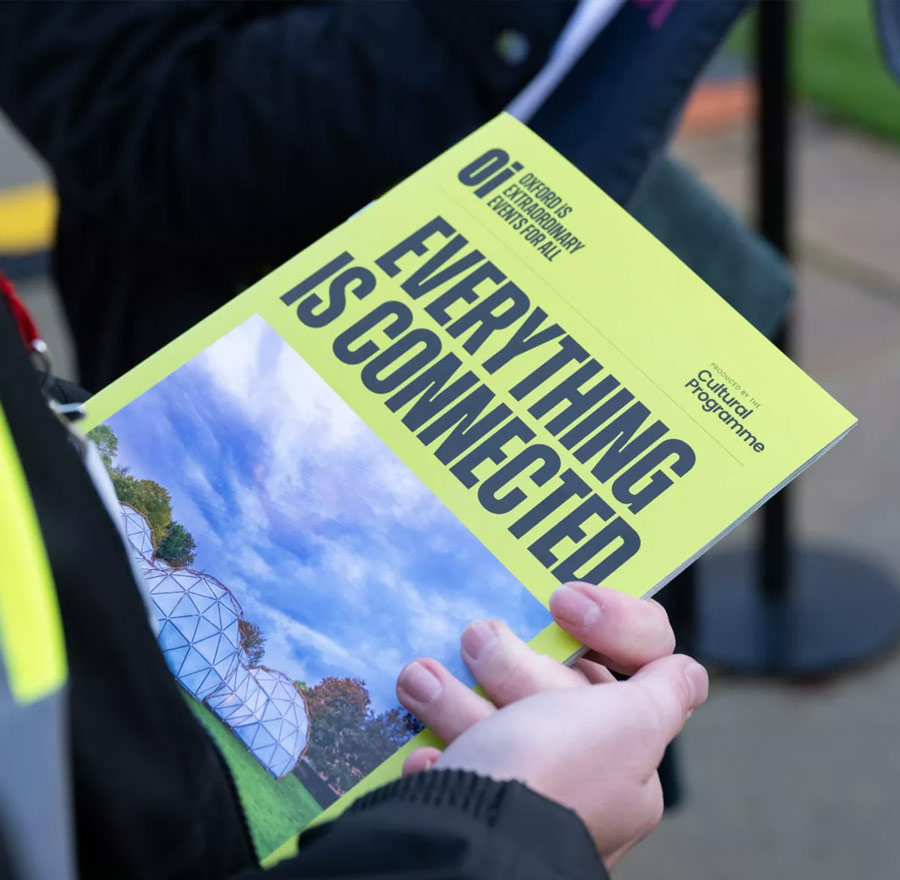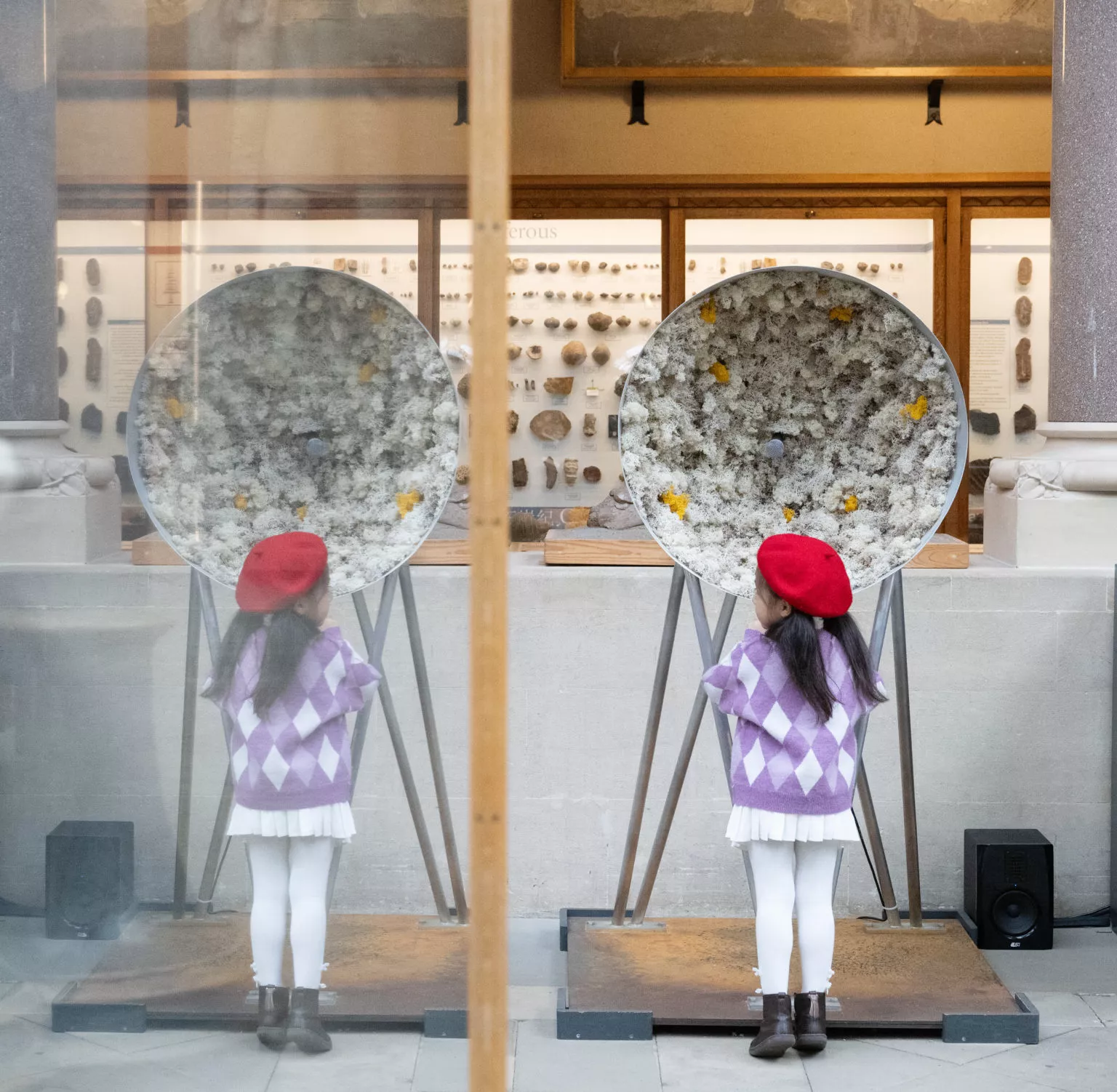Maria was engaged by the Cultural Programme at Oxford University in 2023 to curate a season of cultural activity linked to the Environmental Humanities.
Devising the overarching theme of Everything is Connected in the human and natural world, Maria created a curatorial framework with four interconnected strands: Wonder – At nature’s extraordinary systems and places; Be aware – Of our mark on the natural world; Relearn – The stories we tell ourselves about our impact; and Imagine – Stories to help us live more sustainably today and in the future.
Working with partners, students and researchers from across the University, local cultural organisations, international artists, environmentalists, and poets, the programme encouraged people to participate fully, acknowledging the mutually beneficial relationship between humans and the environment and presenting nature as an essential component of our everyday lives.
Highlights included Pollution Pods by Michael Pinsky in partnership with St John’s College, Oxford, Warning Notes by Mark Anderson in, partnership with OCM at Florence Park, and Tell It to the Birds by Jenny Kendler, in partnership with, the Oxford University Museum of Natural History. A collaboration with The Story Museum featured commissions and conversations with Patience Agbabi, Sita Brahmachari, Piers Torday and Ben Okri.
A sold-out series of Natural Dye and ethical fashion workshops in partnership with the Ashmolean Museum, led by artist Kate Turnbull, were followed by an exhibition to showcase the participants’ work.
Everything is connected – OXFORD iS
‘The season was part of the early development of a new cultural programme in Oxford, engaging both city and university, which will eventually be housed in the Schwarzman Centre for the Humanities. As such, it was very important for us to work with a curator who would build trust and relationships with a wide range of community and cultural partners across the city.
Maria’s generous and collaborative approach, combined with her deep knowledge of environmentally engaged cultural work, meant that she was uniquely placed to develop the season for us. Maria brought with her experience and knowledge of curating and delivering cultural programmes and festivals, and the experience of encouraging the development of growing teams. We benefitted from her investment in the people she was working with, and her ability to connect effectively both with researchers within the university as well as with cultural and community organisations across the city.
The resulting season of work far exceeded our initial expectations. Maria skilfully evolved the focus of the season, increasing the focus on public installations and curated conversations in order to maximise both public and researcher engagement. The collaboration with the Sustainability Office to bring Michael Pinsky’s Pollution Pods reached almost 4000 people, while the collaboration with the Natural History Museum was seen online by more than 400,000. She carefully curated the programme to ensure it remained within the frameworks we had agreed, while supporting and challenging the team on how it could best be delivered.
Maria brought intellectual focus and shape to the season, responding to the input of academics and artists, to create a narrative which travelled from observation, to reflection and then to action. The season has seeded conversations between academics and artists which will lead to future cultural projects.
Maria’s skills as a curator are firmly grounded in her experience of collaborating with diverse groups of people to release and synthesise their ambitions and so enable inspiring cultural activity. As Maria is so responsive to context and empathetic to those around her, I have no hesitation in recommending her wholeheartedly…’
John Fulljames, Director of Oxford Universities’ Humanities Cultural Programme



